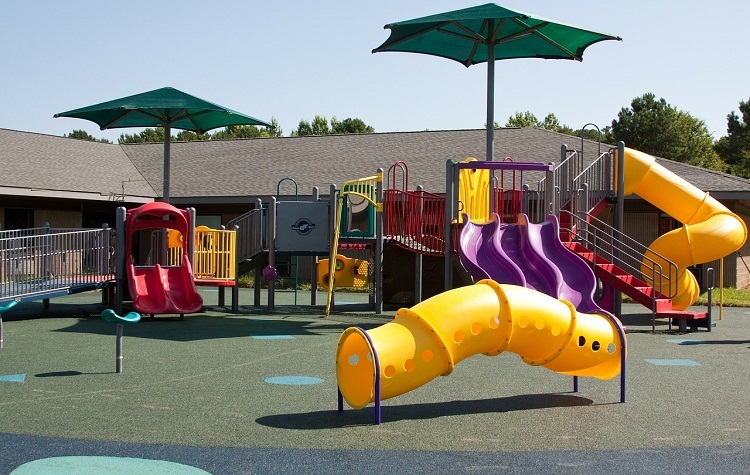A look outside your house and chances are that you will find hoardings or posters advertising a preschool. A preschool near your home is an advantage for both parents and children as they don’t need to travel much for the school. But should that be the major criterion for parents while choosing a preschool?
Preschools are the first institution where a child interacts with the outside world. It lays the foundation for the child’s future. So before you zero in on a play school, remember to check the following seven things which, we believe, are must-haves for a good preschool?
1) School Infrastructure
The building, its playground, classrooms – all need to be child-friendly. Is the school located in a well-maintained building with a guarded entrance? Are there spacious but enclosed playgrounds where a child can play safely? Are classrooms supporting child-friendly environs, e.g, colourful walls and furniture, toys, etc? Are washrooms and wash-basins in accordance with the height of children? Parents should ask themselves these questions while visiting a preschool.
2) Cleanliness
Your child is going to spend 3-4 hours in the building, use its washrooms, eat in classrooms and interact with the members of the institution. Is the school clean? Is it adhering to the strictest level of cleanliness? Also, are the staff members – teachers, helpers and others – hygiene conscious? Remember, these people are going to influence your child’s behaviour and habits – so ensure that they are as cleanliness cautious as you are.
3) Well-qualified Teachers
Teachers are the backbone of schools. Preschools should have qualified teachers. It is important as only a well-trained teacher can nurture children’s imagination, inquisitive minds and ensure their overall development – be it physical, verbal, social, intellectual or emotional. Well-qualified teachers not only understand the nature of development in children but also channel their energy and enthusiasm into constructive learning activities.
4) Learning and Games at School
How children are taught in a school sets the tone for their future learning. While language taught through songs, stories or conversations prepares them for academic achievement, outdoor games help them in mastering gross motor skills. Similarly, drawings improve their fine motor skills. Hence the curriculum of the school should be shaped in such a creative way that the literacy instructions received should go beyond mere comprehension and enhance their critical thinking abilities. Also, games should be played in a motivating environment encouraging teamwork. The activities should focus on overall development of a child even as teaching takes place in a fun-filled environment without being too stressful for kids.
5) No homework
They are kids, their brain and bodies are still not completely developed. Some of them may still be figuring out how to speak. We need to give our toddlers time and space to learn things in their own way, at their own pace. Let them learn by enjoying and observing things around them. It is only then that they will develop their uniqueness. Let’s not burden them with homework.
6) Teacher—student ratio
No child should feel left out as that will hamper his/her future development. It is thus important that teacher should be able to look after every child, which is unlikely to happen if there is only one teacher for a class of 30-40 students or more. A teacher-child ratio of 1:10 or better is said to be ideal for play schools.
7) Nurturing environment
With no family around to protect them, the school becomes their second home. Teachers, support staff, principal are their new relations. Are they polite in their handling of the kids? How do they cope with unruly kids (if kids can be called so)? How do they punish children to teach them discipline? Do they have a nurturing environment where each child is encouraged to be independent and not compared with other classmates? Do teachers support creativity? How is the relationship between a teacher and her students? It is important to choose a school which nurtures its students with love and creativity as a healthy start is important for future growth of our kids.
The Peeper Times would like to thank Gagandeep Kaur Kochar, Principal, Shri Ram Global Pre School, Paschim Vihar, New Delhi, for her contribution to this article.
Do you feel strongly about something? Have a story to share? Write to us at info@thepeepertimes.com or connect with us on Facebook or Twitter



